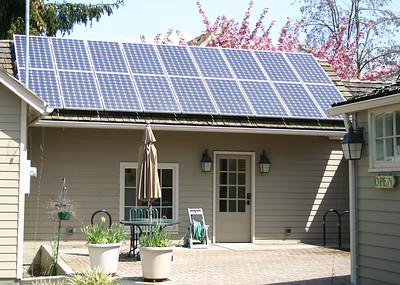On Tuesday, Michigan governor Gretchen Whitmer signed into law a package of bills that require Michigan energy providers to use 100% clean energy sources by 2040. The bills set statewide standards for energy efficiency, as well as change the permitting process for solar and wind energy projects.
Based on the move to clean energy, analysts estimate that Michigan’s energy sector will see continued growth in employment. In the last year, the number of energy workers has increased here by 5%. While signing the bills, Governor Whitmer estimated that the full employment impact of the measures could involve 160,000 jobs.
Currently, Michigan is in the top 20% of all states in terms of carbon emissions related to energy production. More than 40% of all states already have clean energy requirements of some kind. Only the District of Columbia, Hawaii, Puerto Rico, and Rhode Island require energy producers to transition to 100% clean energy sources. Michigan will join this most restrictive group. Among the state’s permitted energy sources are wind, solar, nuclear power, hydrogen fuel, and natural gas with carbon capture.
The nuclear power and natural gas with carbon capture allowances have raised the concerns of environmental groups. Nuclear power generation has always been contentious as a “clean” source. While it does not increase the carbon load in the atmosphere, there are consistent concerns about the ability to safely handle and store spent nuclear fuel. Environmentalists have also criticized the allowance of carbon capture technology, characterizing it as inefficient and expensive, and saying that it does not relieve the environment of the impact of carbon-based fuels.
Clean energy sector will rival construction
The number of jobs the legislation will add is not trivial. At 160,000 positions, the clean energy sector will be comparable in size to Michigan’s construction sector. Community colleges need to get on board quickly to develop training programs for new workers in the sector.
Energy producers are required to hit the new clean power targets by 2040, which is a mere 17 years in the future. The transition period is comparatively short and the stakes are high. Michigan’s new legislation opens opportunities for power producers as well as residential customers who want to transition their homes to renewable energy sources.
This is one of the few “ground-floor” opportunities Michigan will have to add workers to an emerging sector. Since power production is largely local, it is critical that community colleges act right now to develop workforce opportunities for Michigan residents.
Photo Credit: Oregon State University, via Flickr













